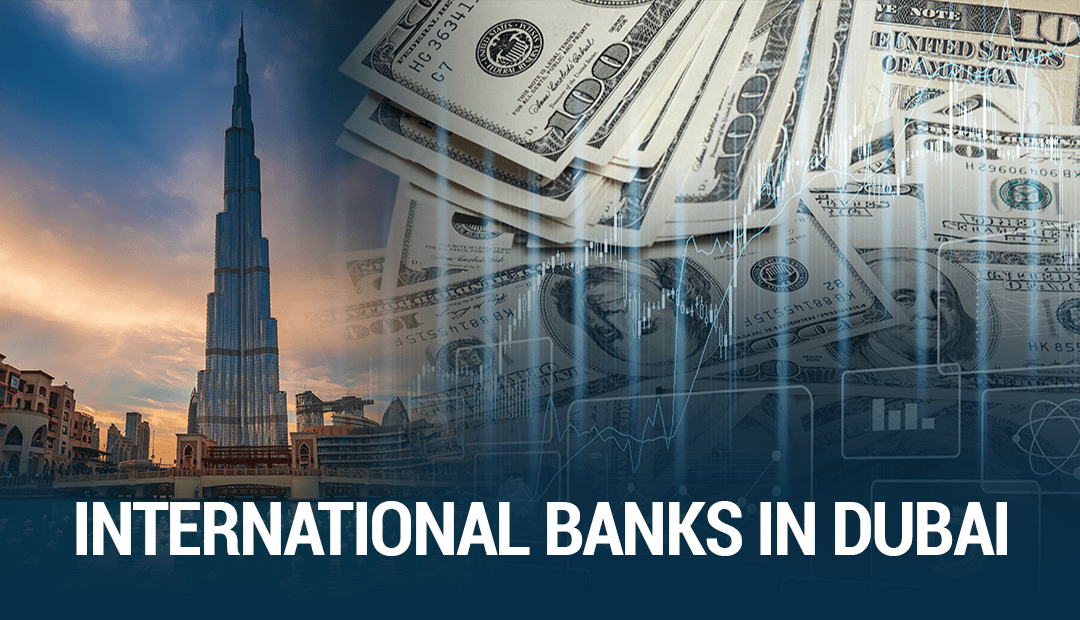Dubai, a bustling hub of commerce and finance, has become an attractive destination for many expatriates, including those from Pakistan. Whether you are relocating for work, starting a business, or investing, understanding how to navigate the banking system is crucial. This article will guide you through the process of opening a bank account in Dubai from Pakistan, focusing on key aspects of Dubai banking and the options available for non-residents.
Understanding Dubai Banking
Dubai banking is known for its robust financial infrastructure, modern services, and a variety of options tailored for expatriates. The banking sector in Dubai is regulated by the Central Bank of the UAE, ensuring a high level of security and reliability. Foreigners, including Pakistanis, can easily access banking services, making it essential to know the process and requirements for opening a bank account.
Types of Bank Accounts in Dubai
Before diving into the process, it’s important to understand the different types of bank accounts in Dubai. Generally, there are two main types for expatriates:
- Personal Bank Accounts: These are for individuals looking to manage their savings, salary, or personal expenses. They can be further divided into savings accounts, current accounts, and fixed deposit accounts.
- Non-Resident Bank Accounts: Specifically designed for individuals who do not reside in the UAE but want to benefit from the banking services. These accounts often come with certain limitations but are ideal for Pakistani expatriates or investors.
Steps to Open a Bank Account in Dubai from Pakistan
1. Research Banks and Account Types
The first step to open a bank account in Dubai is to research the various banks and their offerings. Some of the prominent banks in Dubai include Emirates NBD, Dubai Islamic Bank, ADCB, and Mashreq Bank. Each bank has its own requirements and benefits, so comparing options based on your needs is crucial.
2. Determine the Type of Account
Decide whether you want to open a personal bank account or a non-resident bank account in Dubai. Non-resident accounts may have different requirements and features, such as higher minimum balance requirements or restrictions on transactions.
3. Gather Required Documents
To open a bank account in Dubai, you will need to provide specific documentation. While requirements may vary by bank, the typical documents required include:
- Passport: A valid passport with a minimum of six months validity.
- Visa: A valid UAE residence visa (for personal accounts) or a document indicating your non-resident status (for non-resident accounts).
- Proof of Address: This can include utility bills, a rental agreement, or any official document showing your current address.
- Employment Letter: A letter from your employer in Dubai, stating your position and salary may be required.
- Bank Statements: Some banks may ask for your last three months’ bank statements from your Pakistani bank.
- Photographs: Recent passport-sized photographs.
4. Visit the Bank or Apply Online
Once you have all the necessary documents, you can either visit a branch of your chosen bank in Dubai or apply online, depending on the bank’s policies. Many banks now offer online account opening services, which can be convenient for those applying from abroad.
If you choose to visit a branch, it’s advisable to make an appointment in advance to avoid long wait times. When you arrive, present your documents, fill out the application form, and discuss the account features and any fees associated with it.
5. Complete the Application Process
After submitting your application, the bank will review your documents. This process can take anywhere from a few hours to several days. If approved, you will receive your account details, including your account number and any debit cards or online banking credentials.
Additional Tips for Opening a Bank Account in Dubai
- Understand the Fees: Banks in Dubai may charge maintenance fees, withdrawal fees, and other charges. Ensure you understand these before opening an account.
- Minimum Balance Requirements: Most banks require a minimum balance to keep the account active. Make sure you can maintain this amount to avoid penalties.
- Currency Considerations: While Dubai banks primarily operate in AED (United Arab Emirates Dirham), some banks offer accounts in other currencies. Consider your needs based on your financial activities.
- Utilize Online Banking: Once your account is open, take advantage of online banking services. Dubai banks offer robust online platforms for easy management of your account, international transfers, and bill payments.
Benefits of Having a Bank Account in Dubai
Opening a bank account in Dubai offers numerous benefits:
- Ease of Transactions: You can easily receive funds from Pakistan or other countries and manage your expenses in the UAE.
- Access to Loans and Credit: A local bank account can help you access personal loans or credit cards, making it easier to finance your needs.
- Investment Opportunities: With a bank account, you can explore various investment opportunities available in Dubai, such as real estate and stock markets.
- Safety and Security: Keeping your funds in a Dubai bank ensures that your money is secure in a stable economy.
Frequently Asked Questions (FAQs)
As you navigate the process of opening a bank account in Dubai from Pakistan, you may have additional questions. Here are some common queries that can provide further clarity:
1. Can I open a bank account in Dubai without being a resident?
Yes, you can open a non-resident bank account in Dubai. However, the requirements and features may differ from those of resident accounts. Make sure to check the specific terms and conditions of the bank you choose.
2. How long does it take to open a bank account in Dubai?
The time required to open an account can vary. In many cases, if all documents are in order, the process can be completed within a few hours. However, some banks may take a few days for verification.
3. What currencies can I hold in my Dubai bank account?
Most banks in Dubai primarily deal in AED (United Arab Emirates Dirham). However, many also offer accounts in other major currencies, including USD, EUR, and GBP. This can be beneficial if you frequently conduct transactions in those currencies.
4. Are there any restrictions on withdrawals or transactions for non-resident accounts?
Yes, non-resident accounts may come with certain limitations, such as restrictions on the number of transactions or minimum balance requirements. It’s important to clarify these details with your chosen bank.
5. What are the tax implications of having a bank account in Dubai?
Dubai is known for its tax-friendly environment, as there is no personal income tax. However, it’s essential to understand the tax regulations in Pakistan regarding foreign income and to consult a tax advisor if necessary.






